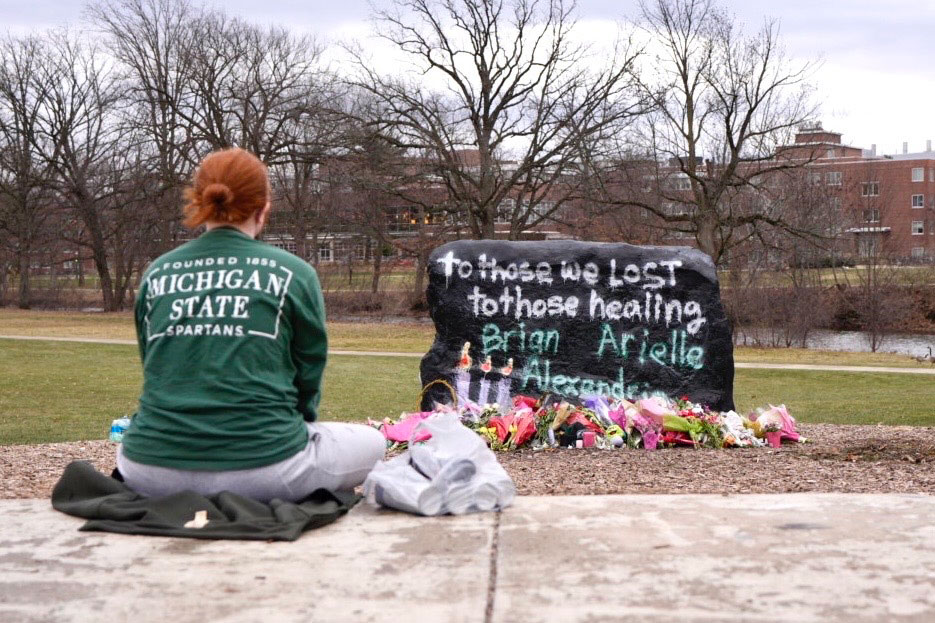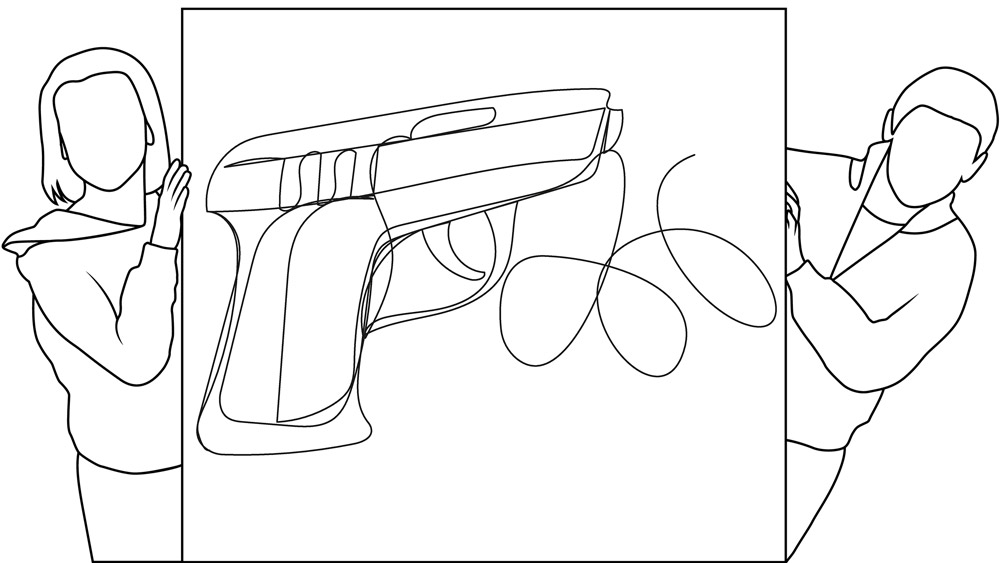Editor’s note: While School News Network always prioritizes student voice in our articles, we know there is so much more to tell. We believe to truly tell the stories that need to be told, we should first and foremost elevate students’ ideas, opinions and experiences. We want to know: What is school really like for them? What do they enjoy? What needs to change? What are issues that need to be addressed? We spoke with 10 high schoolers from seven of the districts we cover — urban, suburban and rural — to get their thoughts on what their everyday experiences are like. This is the fifth installment of six parts of our conversation.
- Part 1: What is it like to be a high school student today?
- Part 2: How big an issue is mental health at your school?
- Part 3: What would you like adults to know about what your life is like?
- Part 4: How much of a problem is social media, and how do we fix it?
By Charles Honey
All districts — When you ask a panel of today’s high school students about what their lives are like, the subject of school shootings simply cannot be avoided anymore. There have been 377 school shootings from Columbine in 1999 to the Covenant School in Nashville last month, according to The Washington Post. It’s a reality for which students must prepare via routine lockdown drills and somehow process into their daily awareness. In discussing the issue with our 10 thoughtful panelists, it was clear they are very aware of that reality — and they worry that adults aren’t doing enough to protect them.
SNN: Unfortunately, I have to mention these school shootings. When they happen, how does that affect you? Do you feel safe? And what do you think your schools should be doing to address these incidents?

Karl, senior: “I’m not worried about a shooting. I know that they do happen, which is very unfortunate, and sad. But at (my school), we lock the doors, we go through the drills, even if it were to happen. But I feel the mental health of my school is good enough that we wouldn’t have somebody that would want to kill (other students).”

Emma, senior: “I’d say I feel relatively safe. But we have had quite a few threats of shooting and bomb threats. We had to evacuate the school a couple of times, like in my middle school. There was a kid who tried to burn down the elementary school where I was. So I’ve had quite a few experiences with it. And I’d say I feel safe now, but it’s not like that all the time. And now that the shootings are getting closer and closer to home, I feel like it’s starting to, like, really hit home for a lot of students and create that feeling that they’re not safe at school.
“(School staff) haven’t really addressed much anytime there’s been something that’s happened. … They haven’t told students or parents any information as to what happened or what they should do, and there’s no reflection by teachers even addressing some of the stuff that we’ve had. They just kind of brush it off and try to move on. I get you don’t want to, like, dwell on it, but at the same time, since we’ve had quite a few things happen, I feel like it needs to be at least addressed and how to deal with it by teachers in the classroom.”

Joel, junior: “I think our school is pretty safe. But last year we actually had a kid bring a gun to school and was planning on shooting (it in) our school during our passing time. No matter how safe it could be, there’s always a chance that they could get through. The question is, does being safe actually really mean you’re safe? In my perspective, it doesn’t — it’s just that when it happens it’s going to happen. It’s not something that you can avoid. Unless you have metal detectors to make everyone who comes to school feel like the school isn’t safe and you have to have (detectors). Should you really be putting metal detectors (in schools), making kids worry if they’re safe or not?
“Before I moved here, I was going to go to a high school in Florida, which my friends go to, (where) they just went through a school shooting. And it was different talking to them because, you know, people were posting on Snapchat everything like ‘school shooting’ and they had videos of everyone running out of the school. And I’m like, ‘Hey, are you all right? How did everything happen?’”

Kaymin, junior: “I feel like everybody at my school is in the mindset of, ‘Oh, it’s not gonna happen to us.’ And then we recently just got a threat, and the person who said they were going to shoot it up was suspended. And then the day that he said he was going to shoot up the school, he was allowed to go back to all of his classes with a backpack. … And I know a lot of people felt scared that day. We were all just like, what’s gonna happen? Everybody in all of my classes was talking about what we would do or where we were going to go if this happened at this time. It just kind of hit, like, this can happen to us. I mean, you don’t think about it unless you hear about it in the news, because it’s not something you want to think about. You don’t want to think about your school being shot up. But it’s a very real thing. And we’re all real people that it’s a very real possibility of it happening to. And I feel if we increase safety measures, like if we put metal detectors in, what’s that really going to do except make school feel more like a prison?
“I just feel like a lot of school shooting issues stem back to mental health issues. So we have more available resources and more of a normalization of mental health, like, ‘People have problems; it’s OK, please get the help that you need.’ If we have more of a sense of that in schools, I feel like then we would finally see a decline in school shootings.”

Liz, senior: “I was going to bring up the (Michigan State University) shooting that happened recently, because three of my friends were actually there on campus, and one of their friends was in the classroom that was shot up. So it was very close to home. But it’s talked about for a couple of days to a week, and then it gets brushed off as if we’re just used to it. Which is very scary to think about, that we’re getting used to things like this. So if we kind of normalize getting help for mental health, we can see a decline rather than stigmatizing things. Because I know at my school, if you see someone going into the counselor’s office, you’re like, ‘Oh, what do you think they’re going to talk about?’ Stigmatizing is going to cause more problems and people aren’t going to feel comfortable talking about how they feel.”

McKenna, senior: “We need to talk about it, first of all. (After) the MSU shooting, I had one of my six teachers talk about it for a day, and then we just brushed it off. Same thing with the Oxford (High School) shooting: I had my first-hour teacher talk about it, and then the rest of the day, (it was) like it was completely fine. It’s really scary to think that we’re used to having people bring guns into school and shoot people. And I think we get mistaken that this is happening all over the world. It’s not. It’s an American issue. I think we’ve grown so normalized to it that we’re like, ‘Oh, it’s fine.’ And (when talking about) people fighting for stricter gun laws, (some people) are like, ‘Oh, they’re just crazy. It’s not going to happen that much anymore.’ It is, and so we need some sort of policy change about it.

“I don’t know if any of you guys believe this, but (I’m thinking about) the idea of, ‘Let’s arm teachers.’ … Well, first of all, we’re saying that the solution to gun violence is more guns, which makes no sense to me. And secondly, we already have a shortage of teachers, and then we’re teaching new teachers that it’s a workplace hazard. Like every day when you go to work, you could get shot, which was not a thing 10 years ago. So we’re already fighting for teachers, and then we’re asking those new teachers to be armed and keep a gun? The thing is, you can say, ‘Oh, they’ll keep it in a safe, they’ll be the only ones who know the code to it.’ They said the same thing about our teachers’ Wi-Fi, and all of the students found out the code to it, and so we have better Wi-Fi. Kids will find out anything. If you’re putting a gun in a classroom and you’re expecting that (of) the 150, or however many students that go through that classroom, one of them isn’t going to figure out what the code is and share it with all of their friends, well then, you don’t know teenagers very well.”

Kerim, junior: “It’s crazy to think about Oxford (happening) over a year ago, and then you get the MSU shooting … Even people that are sitting at this table, over 50% of them can say, ‘My school has been affected by it,’ or, ‘I know somebody personally (who has experienced a threat or school shooting)’. (That) is absolutely insane. Like, that is just a crazy statistic. … It gets to a point where (when) we had our school shooting threat, we had metal detectors for two days. Two days. And it wasn’t a threat that was called in. It was sketched on to a boys’ bathroom stall, meaning that there was physical proof. … And a week prior to that, at a football game, we had a bomb threat.
“It is clearly getting out of hand, where you can look at places like any other first-world developed nation, Canada, Germany, the UK, Australia — how many school shootings happen, how many gun violence things happen? I’m willing to bet that there (are) more school shootings in America than there are shootings of all kind combined in other places in the world. … Just think about how crazy it is that you could walk by a high school student (and have) a 50-50 chance that they (had) a school shooting that happened to them, or somebody they know had a school shooting threat. … The thing is, we’re continuing to see that (incidents are) growing more and more, and the fact that everyone can be saying, like, ‘Well, I kind of feel safe at my school…’ — Kind of? You kind of feel safe at a place that you are forced to go until you’re 18. Why is that a thing? You should not feel that.”
Next installment: What do you like best about your school?
Thank you to The New York Times for inspiring the format for this panel, which we used to elevate the voices of students.









